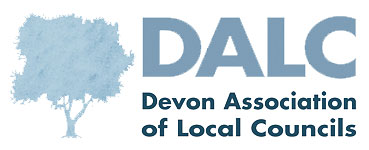Annual Parish Meeting

The Annual Parish Meeting is a meeting of the electors, so is a great opportunity for community engagement!
What is the annual parish meeting?
Annual parish meetings (sometimes called annual town meetings or annual assemblies) are not a meeting of the council but instead are a meeting of the electors. The meeting for each parish must assemble once a year between 1 March and 1 June (inclusive). Although there are a number of ways the meeting can be called, it is NALC’s view that the parish or town council has a duty to assemble the annual parish meeting during that time period.
The meeting is intended to be a useful forum for the community to discuss parish affairs. There are no guidelines on what may count as a parish affair, but it could be anything that affects the parish which is reasonable for discussion. You can contact us for more guidance if needed.
What do we need to know?
The meeting may be convened by:
- the chair of the parish council
- any two parish councillors for the parish
- where there is no parish council, the chair of the parish meeting or any person representing the parish on the district council
- any six local government electors in the parish
Public notice of the meeting must be given 7 clear days* beforehand specifying the time and place of the meeting, with an agenda of what will be discussed and signed by the person(s) convening the meeting. The notice can be posted in a conspicuous place or places, such as your noticeboard, and anywhere else which might help publicise the meeting.
The meeting cannot commence earlier than 6pm, and may not be held in premises which are used for the supply of alcohol unless no other room is available free or at a reasonable cost.
The meeting must be open to the public and the press. If the chair of the parish council is present at the meeting then they must preside over the meeting.
*If the meeting is being convened to discuss the establishment or dissolution of a parish council or the grouping of the parish with another parish under a common parish council, then public notice must be given at least 14 clear days before the meeting.
Community engagement
This is an excellent opportunity to engage with the community, by providing a space where members of the public can share their views or where local organisations (including the council!) can promote their work. Your council may already have a structure for the meeting in place but it’s always worth thinking about new ideas. Some of our top suggestions for increasing attendance and engagement are below.
| Offer refreshments – a free cream tea or promise of sandwiches can encourage people to attend | Use it as opportunity to present an annual report from the council | Give out community awards (like South Brent’s Community Champions) |
| Feature presentations from different local organisations such as the school, police, climate groups etc | Give out grants at the meeting so organisations receiving a grant will attend | Operate the meeting as a fair with stands from different organisations |
More information
LTN 06 – Meetings of Parish Meetings Sept 2014
Advice for winter meetings
You don’t have permission to view the content
Lockdown extensions, council meetings and audit deadlines
You don’t have permission to view the content
Decision Making After the 7th May
You don’t have permission to view the content
Remote meetings update
You don’t have permission to view the content
Meetings – when, where and how often?
You don’t have permission to view the content
Agendas and minutes
You don’t have permission to view the content
Decision making and resolutions

Council business is conducted through making decisions and passing resolutions at a council meeting, or a meeting of one of its committees. A council’s decision-making should be transparent.
Decisions made at meetings are known as resolutions and are made by the majority of councillors present and voting (councillors cannot vote by proxy or in advance of the meeting). A councillor has one vote and voting must be by show of hands, unless standing orders provide otherwise. Decisions can only be made in respect of an item on the agenda.
Voting should take place only after councillors have had an opportunity to consider and debate the issue. If councillors find themselves unable to make informed decisions because they need more information, they may choose to defer decision-making until another meeting. A report can be an excellent way of providing councillors with enough information to inform decision-making, and be written by staff or by a councillor. A report may make recommendations, or give the councillors options to choose from.
The chair of the meeting is responsible for the meeting running smoothly with effective discussion and decision-making. They also have a second or casting vote in the event of an equality of votes.
Whoever is taking minutes might take a moment to clarify the decision that has been made to ensure accurate minutes. Any councillor present at the meeting may ask for a ‘recorded vote’ where the names of councillors are recorded alongside their vote; this cannot be done retrospectively.
A councillor, who has a Disclosable Pecuniary Interest (DPI) or another interest stipulated by their council’s Code of Conduct in a matter being considered at a meeting cannot participate in any discussion or vote without a dispensation from the council.
LTN 80 – Members conduct and the registration and disclosure of their interests England (May 2022)
LTN 81 – Pre-determination revised August 2014
Relevant Authorities (Disclosable Pecuniary Interests) Regulations Amended Aug 12
Example of a dispensation request form
Quorum and attendance

Councils can only make decisions at a meeting with enough councillors in attendance to meet the quorum.
A quorum (the minimum number of councillors) for a meeting is one-third of the total number of councillors, rounded up so a council with 10 members has a quorum of 4. The quorum can be no lower than three. The names of those councillors present at a meeting must be recorded and included in the minutes. For ease of reference, minutes can also record the names of those councillors who are absent
Six month rule
Councillors who do not attend a meeting of the council, or its committees, or a meeting representing the council, for six consecutive months will automatically lose their seats unless a reason for their absence has been formally approved by the council. This applies even if the council has not scheduled any meetings. To have a reason for absence formally approved, councillors will need to send their apologies along with the reason for their absence before a meeting; if the council approves their reason for absence then this effectively resets the six month rule. The approval will need to be minuted; merely noting or accepting the apologies is not enough and the reason for absence cannot be approved retrospectively.
If a councillor has not attended a meeting for six consecutive months, and their reason for absence has not been approved, then they are no longer a councillor and the district council should be informed of the vacancy to start the election or co-option process.
Rights of the Press and Public
The press and public have a statutory right to attend meetings of councils and committees, and standing orders may exclude or permit attendance at sub-committees. The public can be excluded from all or part of a meeting if consideration on certain matters is prejudicial to the public interest because of its confidential nature or another special reason. Councils may invite individuals giving professional advice (e.g. solicitors or consultants) to speak at their meetings when it is in private session but cannot invite individual members of the public to stay.
When attending a committee on which they do not sit, councillors are there as members of the public and would be excluded if the public were excluded. District and county councillors attend all parish council meetings as members of the public unless they are also a parish councillor.
Local councils should give consideration to the needs of persons accessing and participating in their meetings i.e. disabled access, hearing impairments etc, as per the Equality Act 2010 (read legal topic note 78 here for more information).
Public participation
It is good practice for councils to set aside time at meetings for the public to make statements and ask questions. Councils are advised to adopt standing orders to structure public participation sessions i.e. restricting comments to items of business on the agenda, length of time they can speak etc. Public participation should be included on the agenda as part of the meeting, managed by the chairman, and documented briefly in the minutes. It is not necessary to document the personal data of those who spoke at the meeting; a brief outline of issues raised during public participation is sufficient.
Model Standing Orders (2018)
You don’t have permission to view the content
